Blessed and Milk Thistle for Breastfeeding – Does It Work?

Lactation can be a weary time for new mothers. Both mother and the baby may take a while getting used to the experience when the baby first starts suckling. It can get even more trying if the mother is not lactating sufficiently due to adoptive nursing or low supply. Lactation consultants do advise moms to have galactagogues in many cases.
The only absolutely proven way to increase supply is to remove milk more frequently, but many parents report a good boost with certain galactagogues, and most cultures have recommended foods during lactation. Any amount of galactagogues consumed will effectively work only if the baby is allowed to breastfeed often. Breastfeeding is a demand and supply principle-based activity, Even herbs can have a reaction to the body type, so any galactagogues must be consumed in consultation with the gynaecologist or lactation consultant.
There is an array of galactagogues in the market, but it can be daunting for a mother to choose without expert guidance. Here we discuss Blessed Thistle and Milk Thistle with related benefits and safety tips.
What Is Blessed Thistle?
Blessed Thistle has medicinal value and has been in use since the Middle Ages when monks used it in tonics. Hence, it has also earned the name of Holy Thistle or St. Benedict’s Thistle. Not only does it treat different ailments such as dyspepsia, fever, or indigestion, but it also helps regulate hormones. Blessed thistle has even been suggested for supporting liver health and improving bile production. Originally native to Europe and the Mediterranean region, it is deemed to be a weed in most parts of America and is now widely grown in many parts of the world.
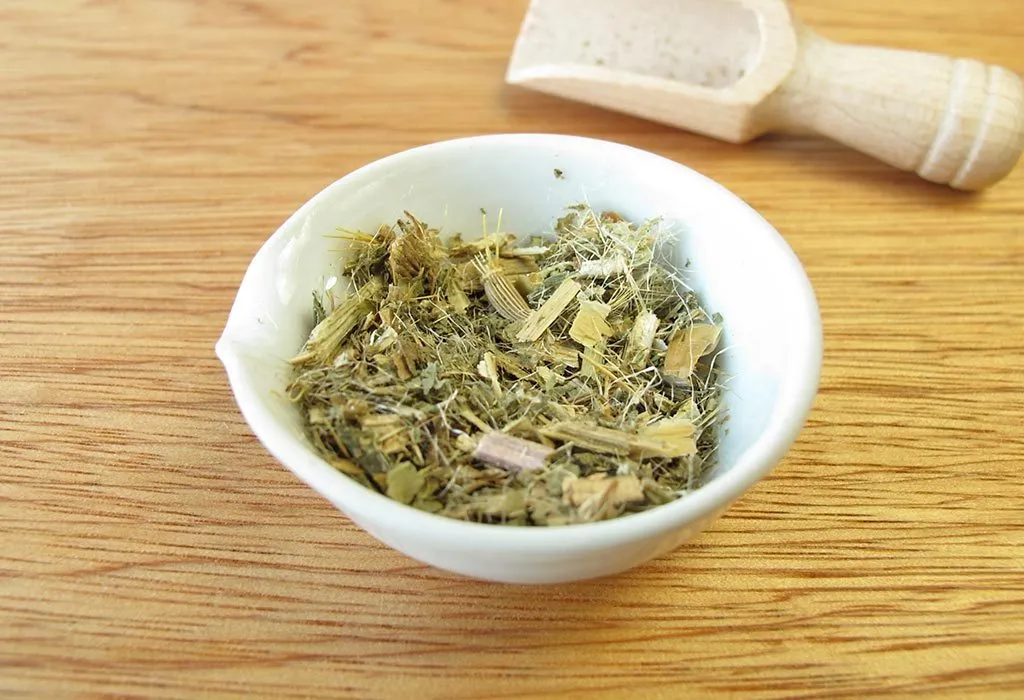
1. Is It Safe for Breastfeeding Mothers?
Blessed Thistle is considered to be a fabulous galactagogue (1). A galactagogue is anything that can improve milk supply during lactation. Experts suggest that it is safe to take because very little actually gets into the milk, thereby, having no effect on the baby.
2. Blessed Thistle Benefits for Breastfeeding
Although there have not been enough clinical trials to substantiate the effectiveness of blessed thistle in breast milk production, there have been a few isolated studies conducted to understand its benefits. Blessed thistle has many benefits during breastfeeding like regulation of hormones and treatment of conditions like indigestion (2). Blessed thistle could also help alleviate conditions like lack of appetite, congestion, and cough.
3. How to Use Blessed Thistle for Lactation
The most common method of taking blessed thistle is in the form of tea or as capsules (3). Mothers using a combination of fenugreek and blessed thistle have mentioned its effectiveness in improving milk supply. Nevertheless, it is prudent to consult a lactation expert before you decide to take a herbal supplement.
4. Recommended Daily Intake
Listed below are the daily recommended dosages for taking blessed thistle as a galactagogue:
- Tea: Mix a teaspoon or two of blessed thistle which is dried with one cup (approximately 236.588 millilitres) of boiling water. You can have 3 cups of tea per day as this is the recommended blessed thistle breastfeeding dosage. To avoid the bitter taste of blessed thistle, you may want to make your brew with other dried herbs.
- Capsules: The recommended dosage for the consumption of blessed thistle capsule while breastfeeding is up to three capsules of 390 mg taken 3 times per day (4).
5. When Can You See the Results
Some mothers have mentioned improved lactation in over two days after consumption while others have reported better milk supply after a few days to a week (5). For best results, it is advisable to breastfeed often and pump after feeds. Like any herb, it may not work for everyone, and blessed thistle may work better with increased breast stimulation.
6. Side Effects and Safety Precautions
The best safety precaution that mothers can take is to consult a lactation expert before taking any supplements during breastfeeding. Herbs can interfere with certain prescription drugs and, therefore, you should check with your doctor about taking supplements if you are on medication.
Be cautious of the following points before taking herbal supplements like blessed thistle:
- Consuming blessed thistle in great amounts may lead to diarrhoea, an upset stomach, and vomiting (6).
- Blessed thistle is known to improve bile secretion and production of acids in the stomach. So, avoid blessed thistle if you have gastric issues or ulcers.
- Blessed thistle may also intensify the production of stomach acid and interfere with any antacids or medication you may be used to reduce heartburn.
- If you have ever been allergic to daisies, sunflowers or ragweed, which belong to the same family of plants that blessed thistle belongs to, then avoid taking it.
7. If You Get Pregnant While Breastfeeding, Should You Continue Using Blessed Thistle?
Blessed thistle should not be consumed if you are pregnant. It is known to cause uterine stimulation leading to contractions (7). This, in turn, can lead to premature labour or loss of pregnancy. If you conceive while you are still breastfeeding, it will lead to decreased milk flow, and you may be tempted to use blessed thistle. However, it is strictly advised to avoid consuming it during pregnancy.
What Is Milk Thistle?
Milk thistle is a galactagogue that is not to be confused with blessed thistle. Milk thistle is a tall plant with prickly spines and purple flowers. It is also known as Our Lady’s Thistle or Saint Mary’s Thistle. It is originally native to the Mediterranean region but is grown around the world. The active ingredient in milk thistle is an antioxidant called silymarin. It has been used in treating alcoholism, autoimmune diseases, cholesterol, blood sugar, and gallbladder issues.
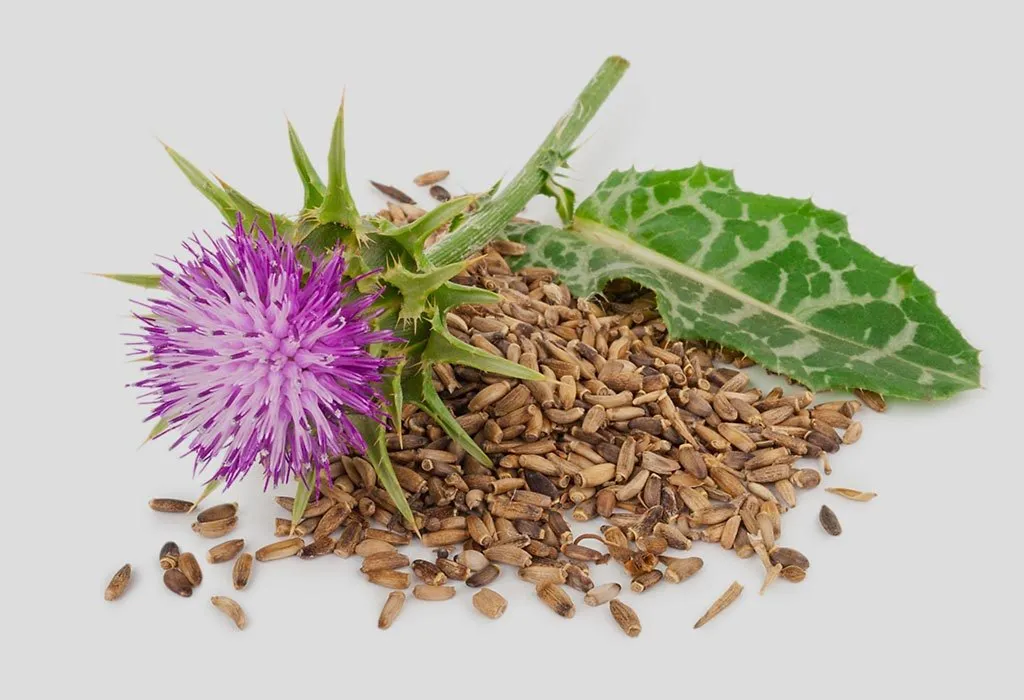
1. Is It Safe for Nursing Mothers?
Milk thistle is considered relatively safe to consume while breastfeeding (8). It is best to have a consultation with a lactation expert for a prescription before taking the supplement.
2. Milk Thistle Benefits for Breastfeeding
As with all herbs, scientific studies have been insufficient in documenting the benefits of milk thistle during breastfeeding. Some random tests conducted have indicated that milk thistle supplements increase prolactin secretion in the body. But scores of women have been using milk thistle for milk production during breastfeeding, and that must count for something. Milk thistle is known to help in regulating blood sugar and cholesterol, too (9).
3. How to Use Milk Thistle for Lactation
Milk thistle can be used in the following ways while breastfeeding:
- Tea: Crush a teaspoon of milk thistle seeds and add it to approximately 240 millilitres of boiling water. Let it sit for 15 minutes before consumption. You can have milk thistle tea while breastfeeding up to three times a day.
- Supplements: Milk thistle is a common addition to nursing teas and other commercially acquirable lactation supplements (10). Use milk thistle supplements for breast milk production as directed by your physician or the manufacturer.
- Food: Milk thistle is a herb that can be entirely consumed after removal of the spine. You can add the leaves to curries and soups or use the seeds while brewing tea. Even the buds of milk thistle are touted to give good results.
- Capsules: Capsules are an easy way of consuming milk thistle. Speak to a lactation consultant for the correct dosage per day.
4. Recommended Daily Intake
You can consume milk thistle tea up to three times a day. In capsule form, it is prudent to consult a medical practitioner or lactation consultant for the correct dosage. Most doctors recommend two or three capsules up to three times a day (4).
5. Side Effects and Safety Precautions
Being a herb, milk thistle is a relatively safe supplement and is non-toxic. There are, however, chances of adulteration because how it is produced is unregulated. Read all labels carefully while purchasing milk thistle products.
The following side effects may present themselves in rare cases (11):
- Allergies to the same plant family as milk thistles like artichokes, daisies, kiwi, or other thistles may be present
- Allergies manifest as prophylactic shock, diarrhoea, or rashes
- Drug interaction with other prescription drugs is a possibility
- Constipation is also a common side effect of using milk thistle
- Presence of bloating and dizziness
- The appearance of blood clots
- Reduced platelet count
- You may also come across instances of eczema
- Secretion of excess liver enzymes
- Sexual dysfunctionality
- Hypoglycaemia
Blessed Thistle vs Milk Thistle – Which Is Better?
Blessed thistle and milk thistle are from similar plant families. Both herbs are commonly available in the form of supplements and capsules. Milk thistle has benefits for the mother and baby because it can reduce toxins in the blood. The reduction of toxins like pesticides in blood naturally means reduced chances of toxins finding their way into breast milk. However, milk thistle is known to be a strong liver cleanser and may be harmful to the baby if consumed in large quantities. Blessed thistle is a safer option for the baby as very little is released through the milk and its action on the liver is not as strong as milk thistle.
FAQs
1. Can blessed thistle or milk thistle cause an unusual taste in breast milk?
Yes, some mothers report that taking blessed thistle or milk thistle can slightly alter the taste of breast milk due to the herbs’ natural flavors. This change, though harmless, might affect how often a baby feeds, especially if they are sensitive to changes in taste.
2. Are blessed thistle and milk thistle safe for mothers with liver conditions?
Milk thistle is traditionally used for liver health, but if you have a pre-existing liver condition, it’s crucial to consult a doctor before taking either herb. Though generally considered beneficial for the liver, its interaction with certain medications or conditions may pose risks.
3. Can blessed thistle and milk thistle help with postpartum mood swings?
While primarily known for boosting milk supply, some women have reported that milk thistle, in particular, may support hormonal balance and help ease postpartum mood swings. However, this use is not well-researched and should be discussed with a healthcare provider.
This was all about milk thistle, blessed thistle and breastfeeding. As a new mother, if you wish to augment the supply of your breastmilk, both blessed thistle and milk thistle are great options. Taking thistle in combination with fenugreek works well rather than taking a higher dose of each capsule. Whatever form of supplement you decide to take, remember that it is important for you to be free of stress as a lactating mother. Find a quiet room and bond with your baby for the best nourishment that you can provide to your child through breast milk.
References/Resources:
1. Blessed Thistle; National Library of Medicine; https://www.ncbi.nlm.nih.gov/books/NBK501775/
2. New compound from blessed thistle promotes functional nerve regeneration; Science Daily; https://www.sciencedaily.com/releases/2024/04/240419182009.htm; April 2024
3. Bazzano. A, Hofer. R, Thibeau. S, Gillispie. V, Jacobs. M, Theall. K; A Review of Herbal and Pharmaceutical Galactagogues for Breast-Feeding (Ochsner Journal); National Library of Medicine; https://www.ncbi.nlm.nih.gov/pmc/articles/PMC5158159/
4. Herbs for Increasing Milk Supply; Canadian Breastfeeding Association; https://www.canadianbreastfeedingfoundation.org/induced/herbs.shtml
5. Marasco. L, Ho. J, Ong. J, Foong. S, Tan. M, Foong. W; Oral galactagogues (natural therapies or drugs) for increasing breast milk production in mothers of non‐hospitalised term infants (Cochrane Database of Systematic Reviews); National Library of Medicine; https://www.ncbi.nlm.nih.gov/pmc/articles/PMC7388198/; May 2020
6. Natural Galactogogues; University of Wisconsin Integrative Health; https://www.fammed.wisc.edu/files/webfm-uploads/documents/outreach/im/ss_galactogogues.pdf
7. Herbs and Pregnancy; American Pregnancy Association; https://americanpregnancy.org/healthy-pregnancy/is-it-safe/herbs-and-pregnancy/
8. Milk Thistle; National Library of Medicine; https://www.ncbi.nlm.nih.gov/books/NBK501771/
9. Milk Thistle; NIH; https://www.nccih.nih.gov/health/milk-thistle
10. Achufusi. T, Pellegrini. M, Patel. R; Milk Thistle; National Library of Medicine; https://ncbi.nlm.nih.gov/books/NBK541075/
11. Milk Thistle; Mount Sinai; https://www.mountsinai.org/health-library/herb/milk-thistle
Also Read:
Best Foods to Increase Breast Milk
How to Increase Fat in Breast Milk?
Lactation Supplements Every Mother Should Take
Recipes for Breastfeeding Mothers to Boost Lactation
Shatavari for Lactation – Does It Really Increase Breast Milk Supply?
Was This Article Helpful?
Parenting is a huge responsibility, for you as a caregiver, but also for us as a parenting content platform. We understand that and take our responsibility of creating credible content seriously. FirstCry Parenting articles are written and published only after extensive research using factually sound references to deliver quality content that is accurate, validated by experts, and completely reliable. To understand how we go about creating content that is credible, read our editorial policy here.







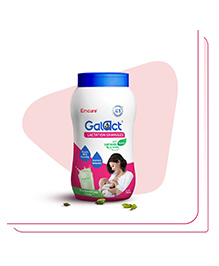
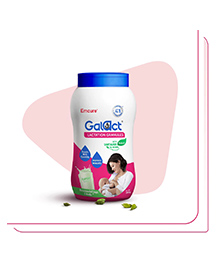
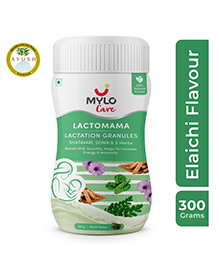

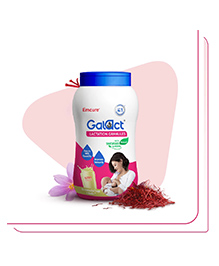

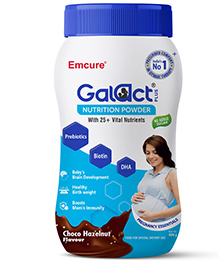







.svg)


















